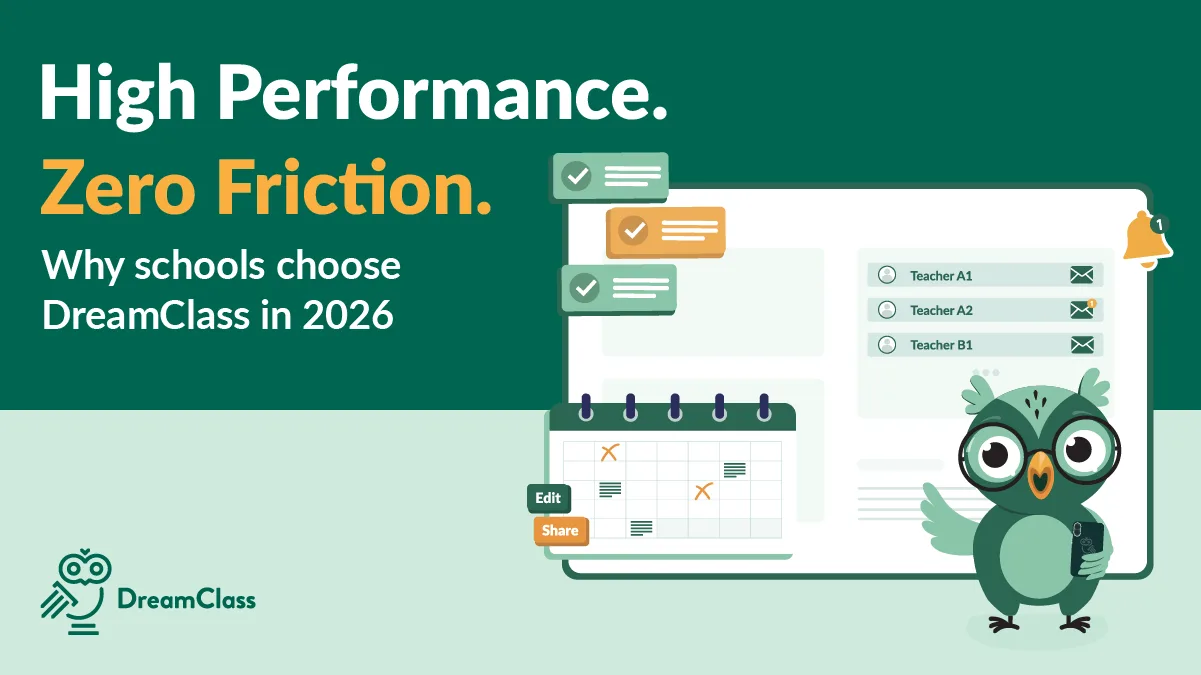
Improving academic performance is a priority for every school. While it may sound like a broad and complex goal, it often starts with specific, intentional actions that influence how students learn and how schools operate. Below, we explore six ways to improve academic performance that every school administrator and educator should consider. These strategies are designed to support all students — regardless of background or ability level — and contribute to long-term success.
What are the best ways to improve academic performance?
So, how to improve student achievement? There’s no one-size-fits-all answer, but schools can adopt several proven practices. From refining instructional approaches to providing structured support environments, here are six impactful strategies:
1. How does structure and consistency support student success?
One of the most effective ways to improve academic performance is to provide a structured learning environment. When students know what to expect, they’re better able to stay focused and productive. And it’s the same if you’re looking how to improve academic performance of weak students, as well. That is, how to increase student achievement, in practice:
- Create daily routines and clear class schedules
- Use consistent classroom management techniques
- Align instruction to defined learning objectives
Structure reduces distractions and enhances students’ ability to engage with course content. That’s how to improve student achievement — especially for students who need extra support. And for all that, you can use a student performance system.
Five stars Software
What I like the most about DreamClass is its flexibility in creating something that fits your needs. It also has a great team that is very responsive.
Director of Operations Education Management
2. Why is it important to identify learning gaps early?
Addressing issues proactively is critical. In determining how to improve student achievement, schools should use diagnostic assessments and formative evaluations to spot learning gaps before they widen.
- Leverage your student information system to analyze grade trends; this will help in improving academic performance
- Implement targeted interventions based on performance data
- Adapt instruction to meet students where they are
The earlier the intervention, the better the outcomes — especially in foundational subjects like math and literacy. A student performance system can help identify these patterns, toward improving academic performance.
3. How can time management help students succeed in academic performance?
Teaching students time management is a powerful way to help them take ownership of their academic journey. Schools can support this through a student performance system, with:
- Timetabling tools and digital calendars
- Encouraging the use of study planners
- Assignments with staged deadlines
When students learn how to break tasks into manageable parts and prioritize their work, they perform better across subjects. Especially if you’re having a hard time finding how to improve academic performance of weak students that may also face other issues, say, attention deficit issues.
4. What role does teacher-student communication play?
Strong communication channels between teachers and students — and between school and home — are essential.
- Use SIS-powered messaging tools for academic updates
- Establish regular check-ins and parent-teacher communication loops
- Provide timely feedback on student performance — or on how to improve student achievement, rather
This level of transparency encourages students to stay accountable and allows parents to get involved in meaningful ways.
5. Why is personalized learning important?
Personalized instruction that adapts to student needs and pace is a cornerstone of effective learning strategies. Technology (like a student performance system) and data make it easier than ever to tailor lessons and support:
- Offer differentiated learning materials based on ability and interest
- Allow flexible pacing for students to master content at their own speed
- Use student data to inform instruction and support planning
This approach is especially helpful for students who fall outside the “average” learning curve.
6. How can feedback be used to drive improvement in academic performance?
Constructive, timely feedback on how to increase student achievement helps students improve iteratively. When combined with clear expectations and rubrics, feedback can:
- Clarify misconceptions
- Encourage reflection and goal-setting
- Reinforce growth mindsets
Feedback loops should be embedded into everyday classroom routines, helping students refine their approach and feel supported. That’s also how to improve academic performance of weak students; that goes to say, these are not recommendations that only marginally help already relatively well-performing students.
BONUS What else can students do to improve academic performance?
While schools play a central role in designing effective learning strategies, did you know that students themselves can take additional steps to improve academic performance? Well, of course you did, but what are these steps? Because, these individual habits can work alongside school-level interventions for greater impact:
- Take notes actively: Jotting down key ideas during class or while studying helps reinforce memory and builds understanding. This practice supports better retention, especially when paired with review routines.
- Ask friends for help: Collaborating with classmates fosters peer learning. It can also reveal different perspectives on the same material, leading to deeper insights.
- Join activities outside the classroom: Engaging in extracurriculars like music, sports, or clubs builds soft skills such as discipline, time management and teamwork; all of which contribute to academic success.
- Use active learning methods: These include summarizing content in their own words, teaching the material to someone else, or applying concepts in practical scenarios. Active learning reinforces comprehension.
- Stay motivated, not quit: Resilience is key to progress. Even small, consistent efforts can result in long-term academic improvement.
- Identify their learning style: Some students learn better through visuals, others through listening or hands-on activities. Understanding what works best helps personalize study strategies.
- Practice self-discipline: Create a consistent study routine, minimize distractions, and set goals. Discipline supports both time management and focus.
- Talk to their teachers: Instructors can offer extra resources, clarify difficult topics, or suggest new ways to approach studying. Regular communication improves performance.
- Hire a tutor, if needed: When a subject consistently feels challenging, additional support can make a big difference. Online tutors or peer mentoring are great options.
These tips not only help students take ownership of their education, but also help educators adjust and improve their teaching methods. Not to mention, they complement school-wide systems, like student information platforms and performance tracking tools.
How do Educational Methods relate to Student Performance?
Find out more about DreamClass
- DreamClass Features
- Improve school performance with DreamClass
- Benefit from a Student Management System, today
FAQ
Frequently Asked Questions
What tools can schools use to monitor academic progress?
Student information systems (SIS) and learning management systems (LMS) help schools track grades, attendance, feedback, and interventions in real time.
How do SIS platforms support study skills development?
Many SIS tools include scheduling, assignment tracking, and communication features that support better organization and time management — all linked to stronger study skills.
What are the top 3 student habits that improve performance?
Time management, active study strategies, and consistent feedback-seeking are key behaviors linked to better academic results.
What are the 5 high impact strategies for student achievement?
Five effective strategies include goal-aligned instruction, differentiated learning, consistent feedback, data-driven teaching, and active student engagement. These approaches help educators personalize learning, monitor progress, and support achievement through tools like DreamClass.
How do extracurricular activities help with academic performance?
Extracurriculars help students develop time management, leadership, and social skills, all of which support stronger classroom habits and performance.
What is the best way to find your learning style?
The best way is for the student (or teacher) to try and find different methods, such as visual aids, audio recordings, or hands-on practice, and see which ones help retain information most effectively. Tools like quizzes or teacher feedback can guide the process.
Why is self-discipline important in academic success?
It enables students to stick to schedules, meet deadlines and resist distractions; thus, creating the conditions for consistent learning and achievement.
When should a student consider hiring a tutor?
When a subject feels persistently confusing or grades are declining despite effort, one-on-one tutoring can offer personalized support and accountability.
What is active learning and why is it effective?
Active learning means engaging directly with material, by teaching it to peers, applying it, or discussing it, which strengthens understanding and memory retention.



